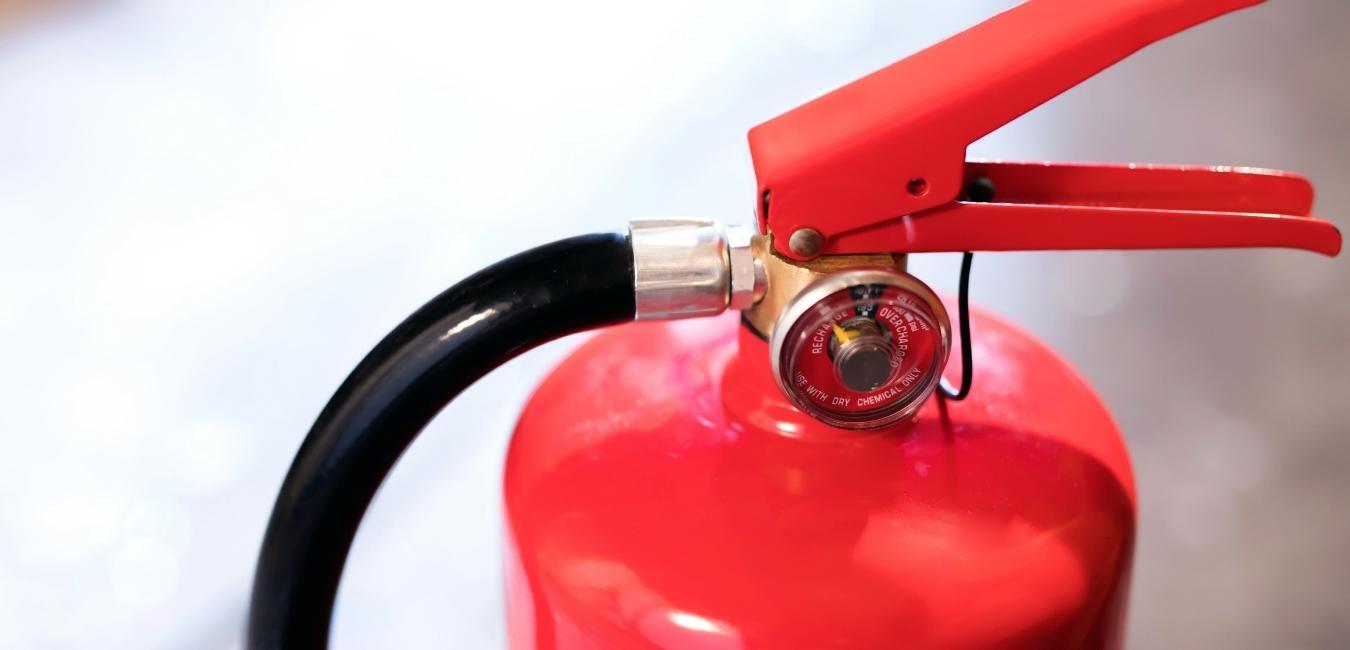How To Prevent Apartment Fires
A Valuable Safety Guide

Did you know that US fire departments respond to a fire somewhere in the nation every 23 seconds?
Outside of the risk to your life, there was
$15.9 billion in property damage caused by fires in 2021 alone.
Even if you have insurance, the stress and emotional trauma of losing your personal belongings aren’t close to worth it. Never mind that you’ll be without your living space if the fire spreads too much.
Thus, learning how to prevent apartment fires should be a top priority.
We’re not saying you live in a hazardous environment where fires run rampant. Instead, taking these precautions falls into the “better safe than sorry” line of thinking.
In this article, we’ll explore various tips on how to prevent apartment fires, ensuring you remain safe and sound in your living environment.
How Common Are Apartment Fires?
We’ll start with some good news–the risks of starting a fire in an apartment are less prevalent than living in a home. After all, chimneys, fireplaces, and fireplace maintenance don’t factor into almost all apartments.
Moreover, building managers hire professionals to maintain heating and air conditioning systems.
So, when examining the question of “how common are apartment fires?” we can say that they are not as frequent as fires in other living spaces. Still, risks exist, and those living in apartment buildings must be mindful of potential fire hazards.
Cooking is the number-one cause of apartment fires, accounting for
almost three-quarters of related incidents.
It’s followed by heating, appliances, open flames, and general carelessness, each causing under 6% of fires, respectively.
Are Apartments Supposed To Have Fire Extinguishers?
In Philadelphia, landlords must have one fire extinguisher with a rating of at least 2-A:10-B:C in stairwells or corridors at each floor level if buildings don’t have water sprinklers.
Moreover, if a building is three stories or less and has one stairway, it’s required to have a fire extinguisher placed equally close to all units.
We’ll point out that these insights come from
one legal expert based in Philadelphia.
You can learn more about these regulations by contacting your
nearest fire department and asking.
On top of extinguishers inside your apartment building, you should also have one in your specific unit. The typical storage area for extinguishers in apartment units is under the kitchen sink.
Equipping your apartment unit with a fire extinguisher will prevent minor flare-ups from turning into catastrophic fires. Ensure that your extinguisher is working correctly and is updated appropriately.
Be mindful that your extinguisher might need recharging–a suggestion that rings doubly true if the extinguisher has been used.
Stay Alert When Cooking
Cooking and eating are life necessities that keep you nourished and functioning at your best. Yet, carelessness in the kitchen can cause damaging apartment fires that adversely affect your quality of life. That’s quite a double-edged sword.
You can eliminate the risks of starting a cooking-related fire by turning off your appliances (namely, your burners) as soon as you finish making food.
When frying or cooking with grease or oil, your vigilance should be at its peak. Also, keeping clothing and other potentially combustible materials far from flames is vital to preventing apartment fires.
Electrical Cord Safety
Here are some valuable tips that prevent electrical cords from becoming fire hazards in your apartment:
Limit the number of extension cords and cord adapters in your apartment and replace them with a power strip equipped with a surge protector.- Extension cord usage should be temporary.
- Extension cords shouldn’t run under rugs or be tacked to walls.
- Unplug small appliances like your toaster when you aren’t using them.
- Regularly inspect your electrical cords for cracks or other damage. Replace them if they’re damaged. Don’t try to repair them.
- Don’t overload wall outlets or extension cords.
- Plug appliances directly into wall outlets–don’t ever use extension cords for them.
Avoid Space Heater Hazards
While apartments generally don’t have wood-burning heaters or fireplaces, many units have space heaters, which can become a fire hazard if you aren’t careful.
Fortunately, space heater safety is straightforward–you must leave three feet of clearance around them, and you’ll prevent potential fires.
Treat Candles With Care
Awareness is crucial when using candles in your apartment.
Sure, we could say to not use any candles at all, and you’d avoid any risks. However, we can’t ignore the ambiance and aromatherapy that candles can offer.
While we understand why you’d want to use candles, safety and vigilance are essential with any open flame. Don’t leave lit candles unattended; ensure they’re placed far away from combustible items (e.g., curtains). Furthermore, any candle should be extinguished before you go to bed or leave a room.
Also, note that your lease might not allow open flames, so you should double-check the fine print.
Indoor Smokers Must Be Extra Careful
Smoking indoors has a litany of health risks that should act as their own preventative measures.
All the same, you’re allowed to smoke in some apartments. In fact, if you’re a smoker and smoking outside during frigid winters or molten summers doesn’t appeal to you, indoor smoking could be a huge selling point.
Provided you must smoke indoors, avoid doing so in bed. Extinguish cigarettes, cigars, etc., before you dispose of them. Ensure lighters and matches are outside of a child’s reach–a suggestion that applies to non-smokers since matches and lighters double as helpful tools in a living space.
Ensure Your Smoke Detectors Are In Working Shape
Working smoke detectors can alert you of a small fire, allowing you to act before it turns into something more catastrophic.
Check for a smoke detector in every room where someone sleeps in your apartment. A detector should also be outside each sleeping area.
Ensure the alarm is working by pushing the test button once per month. Ask your super or landlord to manage any issues ASAP if your smoke detector is malfunctioning or needs a new battery.
Note that if your smoke detector has exceeded ten years of age, it must be replaced. The same goes for batteries over six months old.
At
GM Holdings, we care about your quality of life and safe living. Hopefully, these fire prevention tips will help you rest easy at night.





